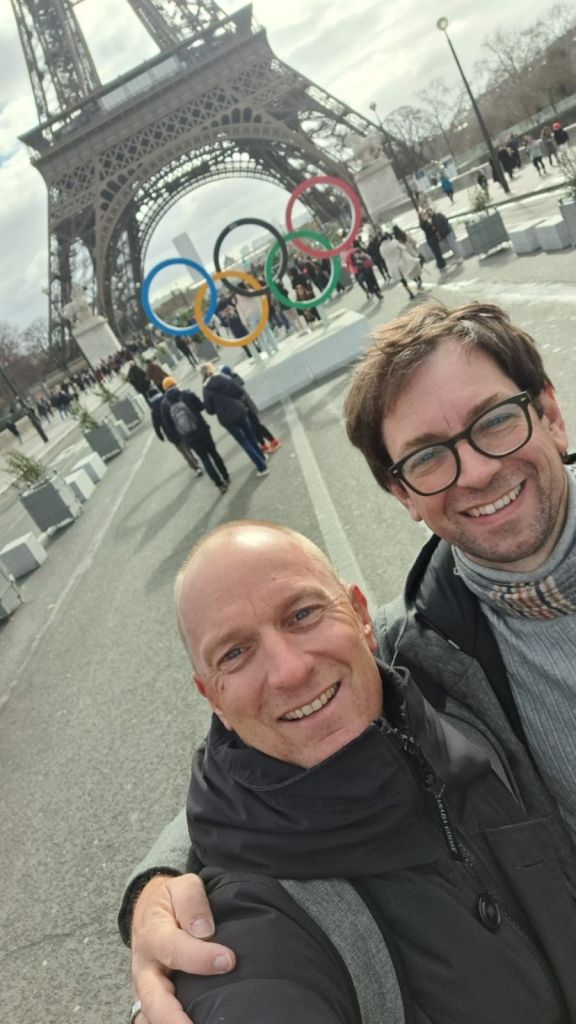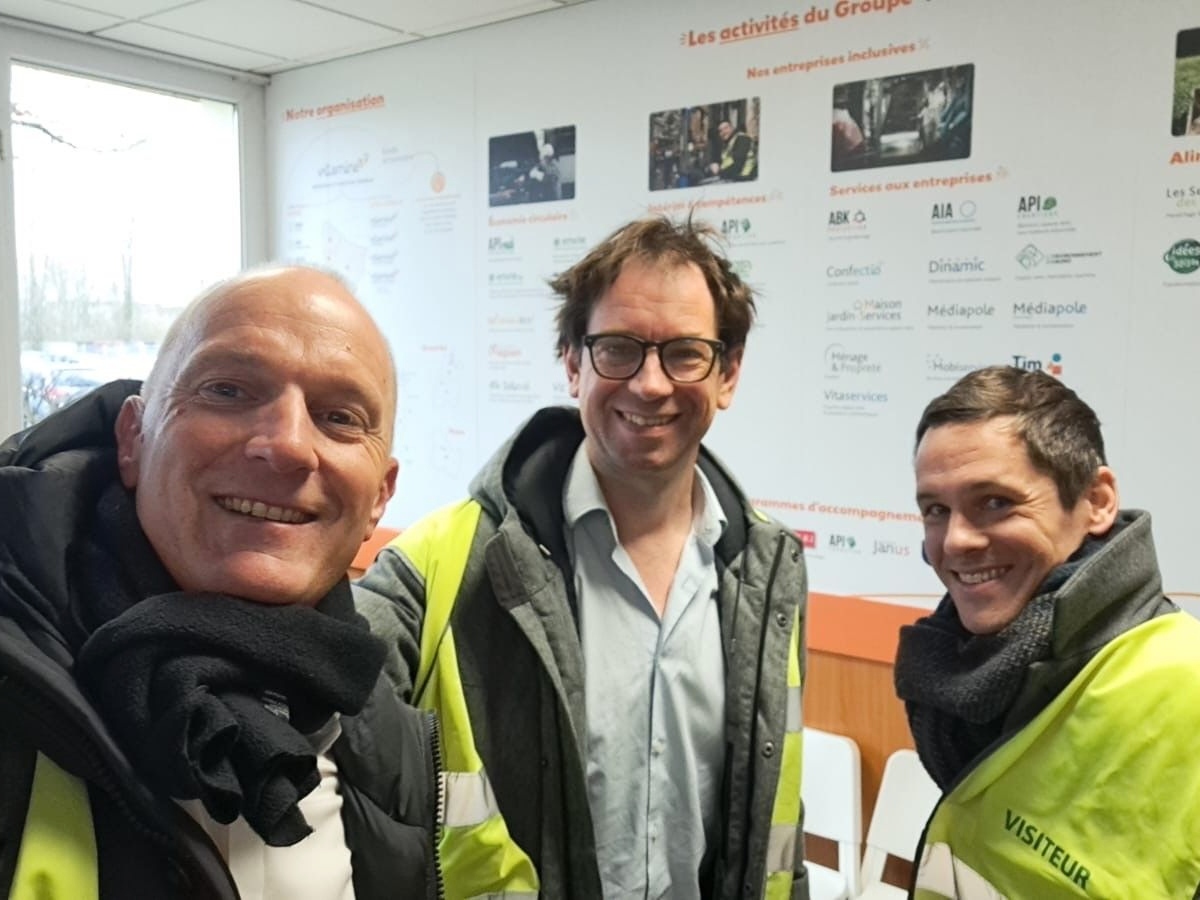In the world of social enterprise, we talk a lot about scale: how to achieve it, how hard it is, and whether it should be the holy grail. But it wasn’t until I stood inside the offices of Groupe SOS — a French organisation with more than 750 entities, 22,000 employees and operations across 50 countries — that I saw what scale can look like when the right support systems are in place.
Thanks to a Helen Lynch Award from Westpac Scholars Trust, I recently had the privilege of travelling to France to meet with social enterprises who are not just surviving, they’re thriving. I saw firsthand how organisations like Groupe SOS, Groupe Vitamine T, Résilience, and Soluval are combining commercial success with social impact on a scale that’s hard to imagine in Australia.
Just take Groupe SOS. Its mission is to foster social cohesion by developing associations and social enterprises committed to social and environmental change. With 2 million beneficiaries supported annually, it’s a powerful example of how large-scale impact is possible when governments, business and communities pull in the same direction.
It’s why I’m so excited to be joining Frédéric Bailly, Executive Vice President of Groupe SOS, on stage at the upcoming Social Enterprise Jobs Summit in Melbourne this June. Together, we’ll unpack what makes this kind of scale possible and what Australia can learn from France’s approach.
One key ingredient? Policy
France’s social enterprise sector isn’t fuelled by good intentions alone. It’s underpinned by Aide au Poste, a €1.5 billion government program (similar to Australia’s nascent WorkFoundations program) that funds four key areas: wraparound support, training, transition and lost productivity costs. In 2024, it supported 350,000 job seekers into jobs-focused social enterprises. That figure alone blew me away.
This is not charity; it’s strategic investment. The French Government sees jobs-focused social enterprises as part of the solution to social and economic exclusion. It contracts directly with more than 2,000 social enterprises and has co-developed a national software platform to refer job seekers into these pathways.
What stays with me most from this trip is the black and white evidence that if we want to scale our sector in Australia, sustained government support for wraparound services is essential. Without France’s €1.5 billion investment (roughly $2.5 billion AUD), the level of impact simply wouldn’t exist. Without a right-sized, co-designed approach in Australia, our delicate sector will continue to hover where it is — full of promise, but unable to reach its full potential.

An Olympic-sized opportunity
Here in Queensland, we’ve been handed a once-in-a-lifetime opportunity with the Brisbane 2032 Olympic Games. If we act now, we could mirror some of the incredible outcomes seen in Paris 2024, where 250 social enterprises were awarded contracts across 400 tenders. The Games were more than a sporting spectacle; they were a catalyst for inclusive employment.
One of the most powerful levers was a combined procurement target: 10% of all hours worked across the Games (in 36 industries including construction, catering and logistics) had to be delivered by people facing barriers to employment. This meant corporate sponsors — from Nike to Coca-Cola — had to engage social enterprises in their supply chains. The results were real and lasting.
Résilience produced shirts worn by 45,000 volunteers — and has since gone on to partner with high-end fashion labels. Le Pavé went from using a pizza oven to turn plastic waste into panels to securing a contract to make thousands of stadium chairs from community-sourced plastic waste. Groupe Vitamine T provided wayfinding and staffing services, giving hundreds of people valuable paid work experience. These weren’t token gestures; they were meaningful, long-term engagements that delivered real economic and social value.
If we want the Brisbane 2032 Games to leave a legacy of inclusion and opportunity, now is the time to act. As Christophe Divi — who helped lead the Paris 2024 ESS (social and solidarity economy) program — told me: getting this right is a huge piece of work. We need to start early.
The business model matters
Of course, getting this right isn’t just about policy. What I saw time and again in France is that the business model has to stack up. Being social-first isn’t enough. You’ve got to build businesses that deliver real value to customers, compete on price and quality, and use that platform to create jobs.
This takes time and dedication. Retail chain Altermundi (part of Groupe SOS) which stocks ethical brands like Patagonia, took years to get its foundations right before expanding. It now has 11 stores across Paris. Vitamine T, whose tagline is “no one is unemployable” (with the “T” standing for “Travail” or “work”), has a full-time team of 10 people dedicated solely to business development because they know that without revenue, there’s no impact.
Looking forward
It’s fair to say there is a lot we can learn from France. On a personal level, seeing these social enterprises up close left me inspired about what’s possible and provided a guiding light for White Box that I had previously found hard to find.
But this isn’t about copying and pasting. It’s about co-designing solutions that work for our context and backing them with the right scale of investment. We have the talent. We have the need. What we lack are the settings to truly support them.
If you’re working in, funding, or partnering with jobs-focused social enterprises, I hope to see you at the Social Enterprise Jobs Summit in Melbourne to continue this conversation. Let’s learn from what’s working, and then work together to build something even better, right here.
Le moment est venu. The time is now.
Luke Terry, CEO, White Box Enterprises

The Social Enterprise Jobs Summit, presented by Social Enterprise Australia and White Box Enterprises, will be held in Melbourne on June 11-12.
What to expect:
- Two days of intensive learning, connection and inspiration
- Masterclasses, workshops and fireside chats on everything from wrap-around supports and transition models through to raising capital
- Plenty of networking opportunities with experienced operators between sessions.
Featured speakers include:
- Frédéric Bailly on how Groupe SOS scaled to 750+ entities employing 22,000 people and reaching more than 2 million
- Sector legends Rebecca Scott, OAM (STREAT), Geoffrey Smith (Australian Spatial Analytics) and Glenda Abraham (Laynhapuy Homelands) sharing real stories from the field
- Commissioner Professor Barney Glover AO on future work trends and opportunities.
You can find out more about the Social Enterprise Jobs Summit and grab your tickets at: jobssummit.com.au.
Join the OnImpact mailing list to receive the latest impact investment news and updates.

